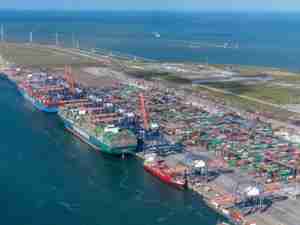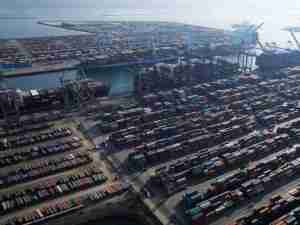World ports contribute to the United Nations Sustainable Development Goals
posted by AJOT | Jul 14 2017 at 11:44 AM | Ports & Terminals
TOKYO - The International Association of Ports and Harbors (IAPH) President Santiago Milà delivered a keynote address at the Opening Ceremony of the 3rd Maritime Silk Road Port International Cooperation Forum that took place in Ningbo, China, 11-12 July. Mr. Zhang Xiao-jie, Deputy Director-General, Ministry of Transport, and other Chinese VIPs addressed the audience who gathered for this annual event.
Mr. Santiago Milà started his speech by saying that the main role of ports is to add value to the economy, and in this context, they should strive to design very efficient logistics chains. These logistics chains should eventually contribute to a sustainable growth based on 3 pillars: social, environmental and economic pillars.
He further went on to say “A lot of attention has – rightly – been paid to the environmental pillar, but true sustainability is about integration with the economic and societal dimensions. Historically, IAPH, at the forefront of developments for ports, took on a pioneering role in establishing in 2008 the World Port Climate Initiative (WPCI), which it is now extending into a World Port Sustainability Programme.”
Under the WPCI a number of practical tools were developed, including guidance document “Carbon Footprinting for Ports”, the dedicated website for Onshore Power
Supply (OPS) was developed and the Environmental Ship Index (ESI) was launched to for ports to identify and reward clean ships and others. Recently at its World Ports Conference held in Bali in May 2017, IAPH decided to integrate the WPCI in a wider World Ports Sustainability Programme (WPSP) that will extend the scope from climate action to a full range of sustainability port development challenges the industry is facing.
By engaging regional port associations and international port-related organisations, the WPSP will be launched officially in Antwerp, Belgium, during a two-day international conference to be held 22-23 March 2018.
More importantly, this new programme WPSP will identify how the global port sector can contribute to the 17 Sustainable Development Goals (SDGs) adopted by the United Nations in 2015, covering biosphere, society and economy. By incorporating “Smart Port” concept and “Digitalisation”, the WPSP is expected to assist ports in increasing the efficiency and sustainability of their day-to-day port operations.










